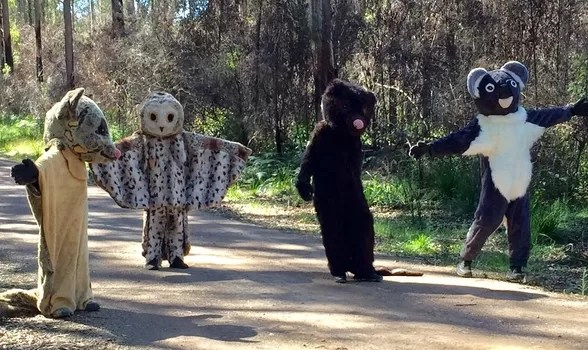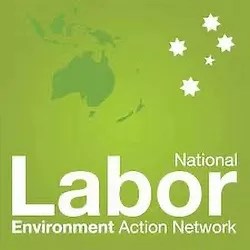September 7 is National Threatened Species day. A day where Australia should hang it’s head.
The ‘2020 State of the Environment report shows we are in a biodiversity crisis. Every environmental indicator is in decline. Australia has the worst extinction rate for mammal species in the world’ with research confirming that over 100 Australian species that were reportedly living in 1788 are now listed as extinct and many more joining the threatened species list.
Habitat destruction impacts the largest number of native species. Clearing of native habitat for Agriculture, mining, buildings, industry and transport.
Invasive species like cats and foxes are responsible for major losses as well as the impacts of bushfires and changing climate.
National Threatened Species Day in 2023 comes just a week after a Stop Work Order was issued on NSW Forestry Corp following the death of an endangered Greater Glider just 50m from logging operation in Tallaganda state forest, south east of Canberra.
The Nature Conversation Council analysis shows that rather than being an isolated incident, greater glider habitat is being logged all over NSW. Map: Greater Glider population density (yellow) overlaid with planned logging operation (white)
“Our research shows that logging is planned in critical glider habitat right across the south coast” Dr Brad Smith, NCC acting CEO.


Left: Greater Glider heat map in the area between Myall Lakes & Port Macquarie.
Right: Greater Glider population in Bulga Forest
“Australia’s iconic fauna and flora are in big trouble. One of the main causes of their decline is habitat loss and habitat fragmentation.
“Here in the Manning Valley we have several shocking examples where government is subsidising that destruction.
“In Yarratt State Forest, logging is destroying an area of forest where koalas live. Logging is due to start soon in Kiwarrak State Forest, badly burnt by the 2019 bushfires and far from recovered. The area targeted for logging is the area nearest Tinonee and the area where there are the most koala records since the fires.
“In Bulga State Forest, logging is about to recommence in one of the region’s strongholds for the Greater Glider.
“If the destruction doesn’t stop, our grandkids are facing a world where they are unlikely to see any of these animals in the wild. That’s a sadder, quieter world. One I don’t want for my grandkids”
said Sharyn O’Dell spokesperson for Save Bulga Forest.
The Facebook group for Save Bulga Forest has more information on their plans for National Threatened Species Day, including a funeral march starting at 10am, 7 September 2023, Fotheringham Park, Taree.
Koala, Greater Glider, Masked Owl, Yellow-bellied Glider and Tiger Quoll will march to remember their friends who are no longer with us.

Photo: Save Bulga Forest
Last year the NSW Threatened Species Committee (PDF) declared that Southern Greater Gliders are particularly at risk from timber harvesting, finding that “the sensitivity of Southern Greater Gliders to timber harvesting has been well documented. Although some habitat across the species’ range is found in conservation reserves, prime habitat coincides largely with areas suitable for timber harvesting. There is a progressive decline in numbers of hollow bearing trees in some production forests, as harvesting rotations become shorter and dead stags collapse, and hollow bearing trees are not being replaced due to lack of recruitment”. See NSW Threatened Species Commission, Final Determination petaurides volans
The 2023 National Threatened Species Day occurs during Save the Koala Month, serving as both a reflection of the current state of these beloved marsupials and the urgent need for their protection, while bearing a historical reminder: the extinction of the Tasmanian Tiger (Thylacine) that met its demise in Hobart Zoo.
Koalas, often considered the symbol of Australia’s distinctive fauna, are now facing unprecedented threats due to habitat loss, disease, and climate change. Their endangered status emphasises the crucial importance of preserving their natural habitats, enabling them to flourish independently in the wild.
The Australian Koala Foundation (AKF) is proud to announce the introduction of five new symbolic wild koalas to the Koala Adoption Program.
These adoptions are more than just symbolic gestures; they represent a tangible commitment to raising awareness and providing crucial support for the preservation of koala habitat. Each adoption signifies a pledge to protect the koala’s home and secure its future.

Deborah Tabart OAM, Chair of the Australian Koala Foundation, said to imagine an Australia with no wild koalas.
“National Threatened Species Day is a great opportunity for us to think deeply about the future of the Koala. It’s a sobering prospect – yet the Koala could face the same fate as the Tasmanian Tiger unless actions are taken.
“Imagine an Australia where koalas no longer flourish in their natural habitat. Imagine the impact this would have on other native species and their environment.” Tabart says.
National Threatened Species Day serves as a day to reflect on the significance of preserving the koala and its habitat. Adopting a symbolic koala is a direct way to support the AKF’s conservation efforts.
“By adopting a wild koala, you’re not only contributing to the survival of this iconic species but also investing in the health and resilience of our entire ecosystem.”
Tabart says.
While adopting a symbolic koala is a great way to raise funds for the AKF, supporters can also shop online or in-store in Warialda, plant a tree, or directly donate to the AKF. For more information visit www.savethekoala.com.
Key Facts:
– National Threatened Species Day emphasises the importance for protecting the endangered Koala
– The Australian Koala Foundation is introducing five new symbolic wild koalas to their Koala Adoption Program
– These adoptions represent a tangible commitment to raising awareness and provide crucial support for the preservation of the koala habitat
The Australian Koala Foundation (AKF) is the principal non-profit, non-government organisation dedicated to the conservation and effective management of the wild koala and its habitat. AKF aims to refine and update the Koala Habitat Atlas mapping of all wild Koala habitat and to get the Koala Protection Act enacted, ensuring longevity of Koalas and their habitat.




